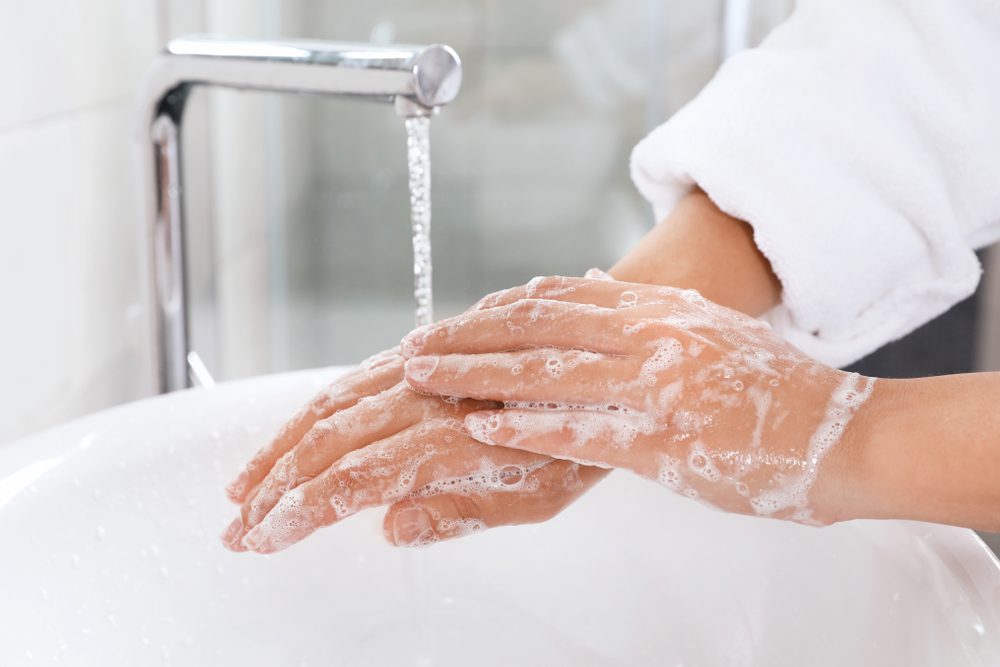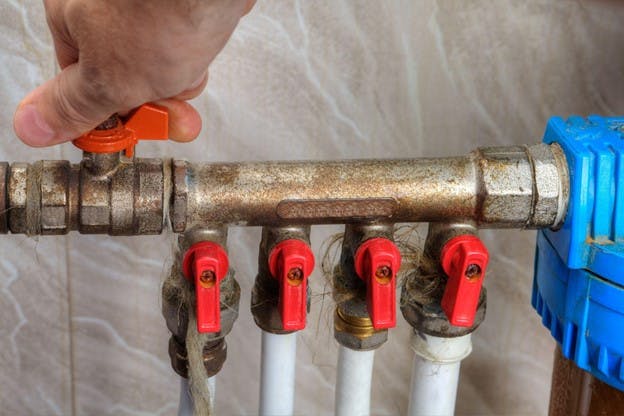Efficient Remedies for Tackling Low Water Pressure in Your Home
Efficient Remedies for Tackling Low Water Pressure in Your Home
Blog Article
On this page below you will find more extremely good ideas in relation to Low Water Pressure in the House?.

Low water stress in your house can be a frustrating problem, influencing every little thing from bathing to cleaning meals. If you're experiencing weak water circulation, there are a number of possible reasons and options to explore. In this overview, we'll go over typical factors for low tide stress and useful steps to resolve the problem efficiently.
Intro to Low Water Stress
Low tide stress takes place when the flow of water from your taps, showers, and various other components is weak than typical. This can make daily tasks a lot more challenging and less reliable. Understanding the sources of low water pressure is important to discovering the best service.
Usual Root Causes Of Low Tide Stress
Faulty Stress Regulatory Authorities
Stress regulatory authorities are responsible for maintaining consistent water pressure in your home. If they malfunction, it can result in low tide pressure or uneven circulation throughout your house.
Local Water Issues
Occasionally, the issue lies outside your home. Municipal water supply problems, such as main line leaks or upkeep job, can briefly minimize water pressure in your location.
Pipe Obstructions
Over time, pipelines can end up being obstructed with natural resource, sediment, or debris, limiting the flow of water. This is an usual issue in older homes with galvanized steel pipelines.
Corrosion
Rust within pipelines can lead to leakages and reduced water stress. Rust accumulation can constrict water circulation, particularly in aging plumbing systems.
Exactly How to Detect Low Water Pressure
Evaluating Pipelines
Check visible pipelines for indicators of leaks, deterioration, or obstructions. Focus on any uncommon sounds, such as knocking or rattling pipes, which might indicate concerns within the plumbing system.
Consulting with a Plumber
If you're not able to pinpoint the source of low water stress, take into consideration employing a specialist plumber to carry out a thorough assessment. They can determine underlying issues and advise appropriate options.
Checking Taps and Components
Begin by evaluating the water stress at various taps and components throughout your home. If the concern is separated to certain areas, it might indicate local troubles.
Do It Yourself Solutions to Deal With Low Water Pressure
Flushing Hot Water Heater
Debris accumulation in the hot water heater can limit circulation and decrease effectiveness. Flushing the storage tank occasionally helps eliminate sediment and preserve optimal performance.
Checking Stress Regulatory Authority
Guarantee that the pressure regulatory authority is working appropriately. Readjusting or changing the regulator can aid recover correct water stress throughout your home.
Cleansing Aerators and Showerheads
Natural resources can build up in aerators and showerheads, lowering water flow. Get rid of and clean these components routinely to improve water pressure.
Cleaning Clogs in Pipes
For small clogs, try utilizing a plumbing snake or chemical drain cleaner to clear obstructions in pipes. Be cautious when using chemicals and comply with security standards.
When to Call a Professional Plumber
If do it yourself efforts fail to resolve the concern or if you believe considerable plumbing issues, it's best to look for support from a licensed plumber. They have the expertise and devices to address complicated problems safely and successfully.
Safety Nets to Keep Water Pressure
Setting Up a Pressure Booster
Think about setting up a stress booster pump to improve water pressure in locations with regularly reduced flow. This can be particularly valuable for multi-story homes or residential or commercial properties with high-demand components.
Tracking Water Usage
Be mindful of water usage routines and stay clear of ill-using the plumbing system. Basic adjustments, such as astonishing showers and laundry loads, can help maintain adequate water stress.
Regular Upkeep
Schedule regular upkeep for your plumbing system to stop issues such as deterioration, leakages, and obstructions. Addressing minor problems early can help avoid more substantial repairs in the future.
Verdict
Taking care of low water stress can be aggravating, yet identifying the underlying causes and implementing appropriate remedies can bring back optimal circulation throughout your home. Whether it's cleaning up aerators, examining pipelines, or seeking advice from a plumber, taking aggressive actions can make sure a constant supply of water for your day-to-day needs.
FOUR WAYS TO FIX LOW WATER PRESSURE NOW
Turning on a shower or faucet only to find the water comes out in a sad, slow drizzle is never a good feeling. How exactly are you supposed to wash a pan or take a quick shower when it takes 10 minutes just to rinse off a little soap? The good news is that when your water pressure is bad, there's always a cause: typically one that can be easily fixed. Here are some of the most common causes of low pressure and what you can do to fix the issue:
DEBRIS AND MINERAL DEPOSIT BUILDUPS
If you notice low water pressure from just one or two of the fixtures in your house, the problem likely has to do with debris buildup. Water is full of minerals and other debris, all of which can accumulate in your pipes and on your fixtures. This can cause a blockage that affects how much water flows through. To fix this, try filling a small plastic bag with white vinegar, and use a rubber band to hang it around your showerhead or faucet. Let the head of the fixture soak for a few hours, and the vinegar should loosen the deposits.
WATER LEAKS
Leaks are another common cause of low water pressure. If water is flowing out of your plumbing through a hole or crack before it can reach your fixture, the pressure coming out of the faucet or showerhead will be lower. A plumbing professional is your best bet for finding and repairing a leak in your water supply pipes.
Leaks are another common cause of low water pressure. If water is flowing out of your plumbing through a hole or crack before it can reach your fixture, the pressure coming out of the faucet or showerhead will be lower. A plumbing professional is your best bet for finding and repairing a leak in your water supply pipes.
A VALVE ISSUE
If you have low water pressure throughout your home, check your main shut-off valve to make sure it's completely open. You may also want to see if there's a pressure-reducing valve installed. If there is, have a plumber help you adjust the settings to get the pressure you're looking for.
OTHERS USING WATER
Believe it or not, your low water pressure could be caused by your neighbors. If you notice low pressure at certain times of day, it may be because you and the people living next to you have similar schedules - when everyone is showering at the same time, the pressure will be lower in every home. Low pressure throughout the neighborhood may also be caused by an issue with your municipal water supply. If that's the case, call the supplier to see if they're working on the issue.
https://www.rotorooter.com/blog/water-leaking/low-water-pressure-fixes/

As a fervent reader on Low Water Pressure in the House?, I assumed sharing that excerpt was a great idea. Be sure to take the time to distribute this blog post if you enjoyed reading it. We recognize the value of your readership.
Schedule A Service Call Report this page